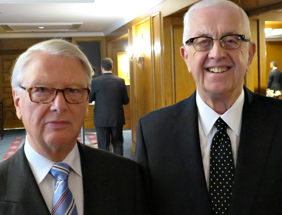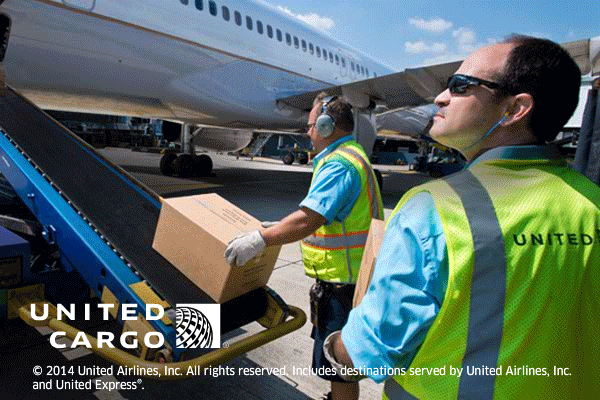  Hi
Geoffrey, Hi
Geoffrey,
IT’S THAT TIME OF YEAR AGAIN!
The 16th Annual Atlanta International Forwarders
and Brokers Association (AIFBA) picnic is set for Tuesday, May 13, 2014,
11:30 am-1:30 pm at HWC Logistics and everyone involved in the transportation
and logistics industry is invited to attend.
HWC is located close in to ATL at 5300 Kennedy
Road, Forest Park, GA.
Please tell everyone you know!
This year we have 2 Southwest Airlines domestic
tickets for Raffle!
Admission: $10.00 per person, which includes
one real home-cooked hamburger, one juicy hot dog, some chips, a soft
drink, & ice cream for dessert.
See you there!
Donna Mullins
President Mullins International Solutions
To contact AIFBA click here
RE: An
Evening With Jacques Ancher
 Hi
Geoffrey, Hi
Geoffrey,
I enjoyed reading your news from Istanbul.
Jacques Ancher hit the nail on the head as usual. Innovation is key to
progress and much needed change.
Sadly very little has changed since his
retirement. As reported elsewhere, it can still take up to 3 days to get
a response to a price quote request.
Fax machines are alive and in daily use
at numerous supply chain offices (think forwarders, GSAs, Airlines etc.)
Looking at the websites of numerous combination
carriers you will be hard pressed to find any information about air cargo.
It is usually a well-kept secret that air cargo is part of their business.
The industry media headlines remain the same year after year:
•
Declining yields
•
Rising fuel costs
•
Integrators increasing market share
•
Over capacity
•
Silly prices from carriers who either do not care or do not have
a clue what their true net costs really are.
How can such an industry, which is stuck
in the seventies, ever hope to attract fresh talent? By all means join
us but please leave your smartphone at home. :-)
Best regards,
Peter
Peter Walter
Director
Walter & Jenkins Associates Ltd.
RE: ICAO
Nixes Lithium Metal Pax 2015
Geoffrey -
There are a number of issues Jens got wrong
in this article that will only lead to more confusion about ICAO's latest
decision on Li metal batteries.
1) ICAO did not "do away with part
II of Packing Instruction 968..." Your readers will now think every
Li metal battery needs to be shipped as a fully-regulated Class 9 DG starting
January 2015. That is wrong.
2. This statement is wrong: "While
it is expected that both the ANC and the Council will approve the DGP's
decision, one should not take such approval for granted, especially in
the light of considerable industry lobbying from organizations such as
NEMA (National Electrical Manufacturers Association and PRBA (The Rechargeable
Battery Association)." If Jen really understood the situation at
hand, he would know we supported ICAO's proposal to prohibit Li metal
batteries as cargo on PAX. Why would we then reverse our position and
"lobby" the ANC and Council?
3. Has Jen seen or tested PyroPhobics Systems?
Probably not. While their materials are promising, it is not a turnkey
solution for shipping Li metal batteries on passenger aircraft as implied
by the article.
4. Lastly, your subject line implies Li
ion batteries are "nixed" from PAX. That is not the case at
all. The ICAO decision only addresses Li metal batteries, not Li ion batteries.
George
George A. Kerchner, Executive Director
PRBA - The Rechargeable Battery Association
1776 K Street, NW
Washington, DC 20006
gkerchner@wileyrein.com
Dear Mr. Kerchner,
While FT is grateful for the feedback we
receive on any and all of our articles, some of the reader’s comments
to our “ICAO nixes Lithium Metal Batteries” article, which
appeared on Monday, April 21st might warrant some further clarification,
also in order to offer some insight into misperceptions commonly encountered
in connection with this subject.
Part II of PI 968 will be retained, e.g.
not deleted entirely, but the “exempt” type of Lithium Metal
batteries will only be permitted on all cargo aircraft. Barring otherwise
detailed interpretation by ICAO and IATA, the requirement is that the
Lithium Battery handling label be applied and marked so that the package
may only be transported on all cargo aircraft, like the procedure currently
is in the U.S. The CAO-label may only be used in conjunction with hazard
labels and would therefore not be permitted on the basis of the present
ICAO TI and IATA DGR. That, however, is quite a complication in handling
since it is reasonably questionable that all staff will apply the required
diligence; likely, more carriers will file deviations, which will add
to confusion.
With regard to the very valid question as
to why lobby organizations might try to influence the eventual approval
of the ICAO DGP decision to ban Lithium metal batteries by the ICAO ANC
or Council, the answer is up to the lobby organizations in question; FT
has no predetermined opinion here. However, it was PRBA who called the
FAA’s “Freighter Airplane Cargo Fire Risk Model” “seriously
flawed and wrong,” a statement the FAA was obviously able to disprove
in their latest demonstrations at the William J. Hughes Technical Centre.
As for the question whether or not the author—Jens—had
firsthand knowledge about the PyroPhobic product, the answer is yes. Having
worked in the forefront of the air transport industry for almost 30 years,
serving as a DG trainer and Consultant subject matter expertise journalist
on air cargo related matters, his experiences bear a lot of resemblance
– both activities are strictly based on facts. So indeed, while
we haven’t called the PyroPhobic IntuPlas containers a “turnkey
solution,” it certainly is a valid shipping solution to the best
professional judgment of the author, and prior to writing this article
the test report and video documentation, which were seen, were impressive.
PyroPhobic may not have the only working solution on the market, but that
is also something we did not claim. We cited the PyroPhobic product as
one working solution, and shipping Lithium Metal Batteries as such on
passenger carrying aircraft after January 1st, 2015, will require competent
authority approval. In order to obtain such approval, the PyroPhobic product
will likely be considered an acceptable means to ensure the required “equal
level of safety” by CAA’s worldwide were such approvals to
be granted.
We acknowledge the misidentification in
subject line (not in the story itself, the headline, or the body copy)
that was unintentional and corrected immediately.
Editor
Geoffrey,
It is always amazing to me why these groups
focus on banning only on passenger aircraft.
Aren’t the lives of the crew and the
people on the ground that the aircraft would crash into important to them?
If these things are that dangerous, then
they should not be carried by air.
To say only passenger aircraft is hypocritical.
Bill Boesch |





